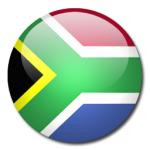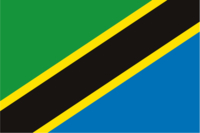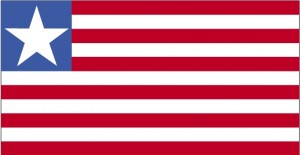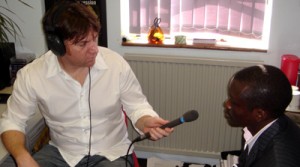 Last year R4D received an email from Godspower Oboido, who’d visited the website and wanted to get in touch regarding an exciting new initiative he had started in Nigeria. Godspower is, in his own words, “on a mission to get rural communities across Africa listening to radio” – and he founded the “Listen Africa” project “to radically encourage radio for change”. Luckily Godspower was visiting the UK long enough for a meeting at Birmingham City University, where the clip below was recorded.
Last year R4D received an email from Godspower Oboido, who’d visited the website and wanted to get in touch regarding an exciting new initiative he had started in Nigeria. Godspower is, in his own words, “on a mission to get rural communities across Africa listening to radio” – and he founded the “Listen Africa” project “to radically encourage radio for change”. Luckily Godspower was visiting the UK long enough for a meeting at Birmingham City University, where the clip below was recorded.
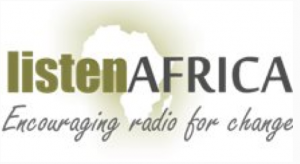
In the video he discusses the plans of “Listen Africa” to create various educational radio programmes which reflect the curriculum of the Nigerian Ministry of Education. In 2013, Listen Africa intends to set up listeners clubs in Nigeria, Malawi and Ethiopia – “giving listeners the opportunity to voice their opinions in the broadcasting of issues that has a direct impact on them”.

